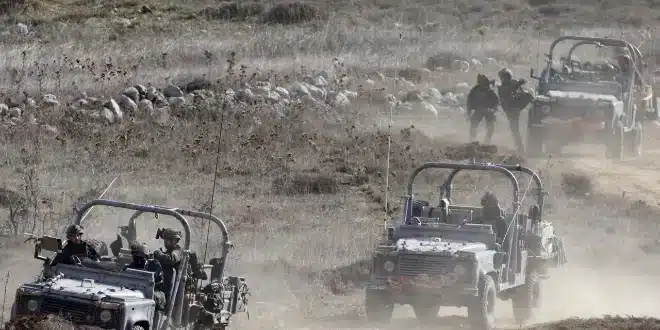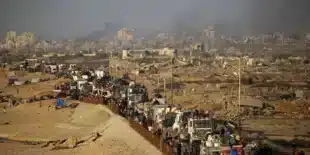Israeli Defense Minister Yoav Gallant has instructed the military to prepare for a prolonged presence in the U.N.-supervised buffer zone between Israeli and Syrian forces on the strategically important Golan Heights. Israel took control of this demilitarized area on Sunday, shortly after Syrian rebels ousted President Bashar al-Assad.
Since the takeover, the Israeli military has launched extensive air and naval strikes targeting Syrian military assets, including chemical weapons depots and air defense systems, to prevent them from falling into rebel hands. The decision to deploy troops in the buffer zone comes amidst ongoing Israeli operations in southern Lebanon, where they have been engaged with Hezbollah militants, and continuing conflict in Gaza with Palestinian factions.
Defense Minister Gallant’s spokesperson explained that the Israeli presence at the summit of Mount Hermon is vital for security, especially given the unstable situation in Syria. Efforts are being made to ensure that troops can endure the challenging winter conditions while maintaining readiness.
Israel claims it seized the zone to safeguard its security. Prime Minister Benjamin Netanyahu’s office stated that the collapse of Assad’s regime has created a vacuum along Israel’s border, making it essential to secure the buffer zone temporarily until a force that respects the 1974 armistice agreement can be established.
Israel’s occupation of the Golan Heights began in 1967, and it formally annexed the territory in 1981, a move recognized only by the United States. The U.N. has strongly condemned Israel’s actions, with Secretary-General Antonio Guterres expressing concern over violations of Syrian sovereignty and the territorial integrity of the region. The U.N. also urged Israel to respect the ceasefire and the armistice terms.
The U.S., Israel’s key military ally, has called for the incursion to be temporary, while analysts suggest that Israel’s actions are aimed at securing potentially dangerous weapons that could fall into the hands of jihadist groups amid Syria’s instability.


